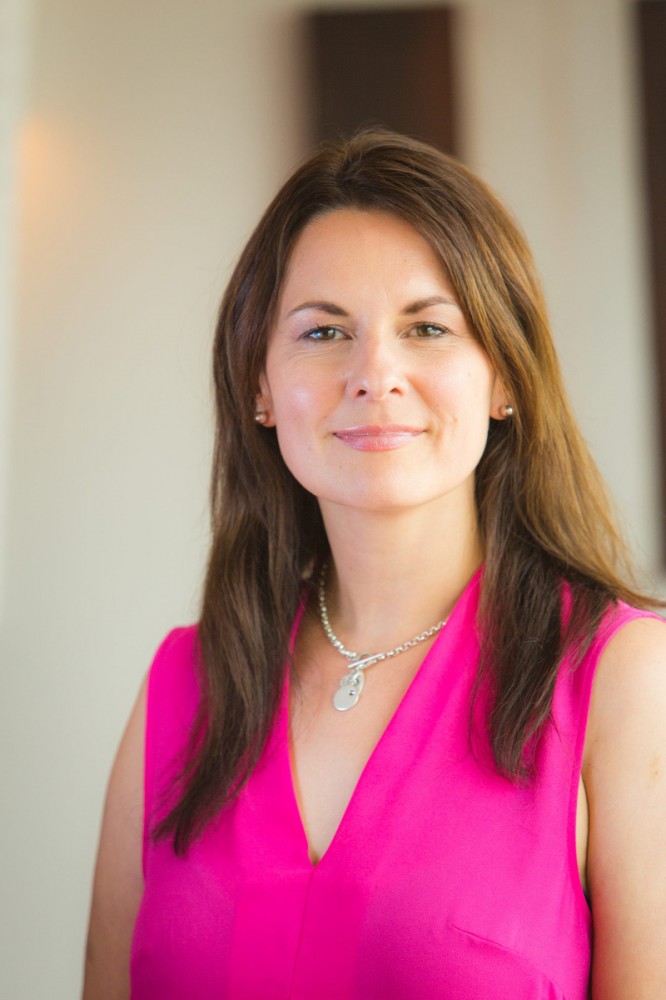Dr Rebecca Sims is a FLIER Programme participant and a Senior Research Fellow at Cardiff University where she studies the genes that influence risk of dementia.
I started off studying biology at Cardiff, but I switched to a genetics degree because all the modules I enjoyed were genetics-based. While I was doing my degree, I did a placement year working on mental health, primarily schizophrenia and bipolar disorder. I really enjoyed it and didn’t really want to go back to university, but I finished my degree and went on to do a PhD looking at psychosis in Alzheimer’s disease.
In 2011, I got an Alzheimer’s Society-funded fellowship to look at rare genetic variation in common Alzheimer’s disease. During that time, I had a year out to have my son, so it ended up being a four-year rather than a three-year fellowship.
I’m from Wales originally and I have always stayed at Cardiff for completely personal reasons – my partner was in Cardiff and there was family support here for me and my son.
I’m still at Cardiff and I’m now a Senior Research Fellow. I have my own group and we focus on genes in early onset Alzheimer’s disease and dementia with Lewy bodies.
I applied for the FLIER Programme partly through frustration. We’ve done a lot of work on using genetics to predict risk for disease and we’ve been trying to work with various people over the years to get it into the commercial domain, but it is a bit like hitting your head against a brick wall. I wanted to join FLIER to have that experience of looking across the different sectors and understanding more about the life science sector as a whole.
Also, it looked like an amazing programme for my career development. I think one of the most important things we’ve done on the programme is spending some time reflecting. In academia, we don’t spend much time thinking about what we’ve done and how we’ve done it. You’re focused on planning the next grant and not necessarily looking back on what you did or how you managed situations.
The FLIER Programme has definitely improved my confidence and I’ve been more pro-active with certain areas of management. I’m more open in my conversations with senior people and peers and I’ve been more assertive with getting my point across.
My longer-term plan is to get our research into use more quickly so we can have an impact on sufferers, or on policy.
We know that, across all areas of medicine, clinical trials are more likely to be successful if they are underpinned by genetic research.
My team has developed an analytical model that uses people’s genetic profile, to predict their likelihood of going on to develop Alzheimer’s disease. It does not give a definitive yes or no, but what it could do is help select a group of people for a clinical trial who are most likely to benefit from a potential new drug treatment. This could also be applied to data from clinical trials that have already run to look at whether drugs would have worked better in a certain group of people.
Getting hold of historical data from pharmaceutical companies and getting the people who are running clinical trials interested in patient selection are both quite difficult. But I think taking part in FLIER and working with the Academy of Medical Sciences will help. I hope it will open the doors to meeting the right people, having the right conversations, and learning how to do this in an informed and clever way.
Dr Rebecca Sims is a participant in Round 1 of the Academy of Medical Sciences’ FLIER Programme, a unique programme that will develop leaders of the future who can create collaborations across academia, industry, the NHS and government to drive innovation.
The FLIER Programme is generously supported by the Dennis and Mireille Gillings Foundation and the Government Department of Business, Energy and Industrial Strategy ‘Investment in Research Talent’ fund. If you would like to support the work of the Academy to develop talented researchers, visit our Supporters page.
